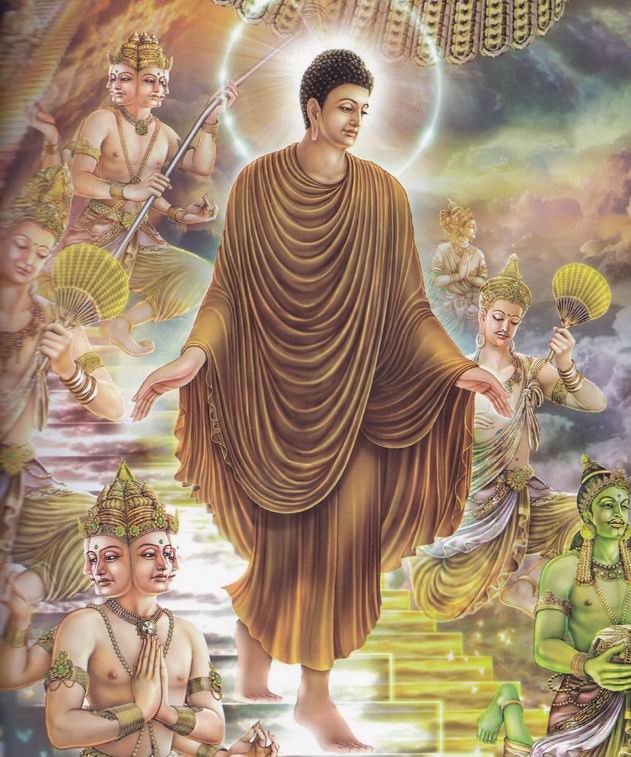The Story of Patipujika Kumari
Verse 48: Like one who picks and chooses flowers, a man who has his mind attached to sensual pleasures and is insatiate in them is over powered by Death.
The Story of Patipujika Kumari
While residing at the Jetavana monastery, the Buddha uttered Verse (48) of this book, with reference to Patipujika Kumari.
Patipujika Kumari was a lady from Savatthi. She married at the age of sixteen and had four sons. She was a virtuous as well as a generous lady, who loved to make offerings of food and other requisites to the bhikkhus. She would often go to the monastery and clean up the premises, fill the pots and jars with water and perform other services. Patipujika also possessed Jatissara Knowledge through which she remembered that in her previous existence she was one of the numerous wives of Malabhari, in the deva world of Tavatimsa. She also remembered that she had passed away from there when all of them were out in the garden enjoying themselves, plucking and picking flowers. So, every time she made offerings to the bhikkhus or performed any other meritorious act, she would pray that she might be reborn in the Tavatimsa realm as a wife of Malabhari, her previous husband.
One day, Patipujika fell ill and passed away that same evening. As she had so ardently wished, she was reborn in Tavatimsa deva world as a wife of Malabhari. As one hundred years in the human world is equivalent to just one day in Tavatimsa world, Malabhari and his other wives were still in the garden enjoying themselves and Patipujika was barely missed by them. So, when she rejoined them, Malabhari asked her where she had been the whole morning. She then told him about her passing away from Tavatimsa, her rebirth in the human world, her marriage to a man and also about how she had given birth to four sons, her passing away from there and finally her return to Tavatimsa.
When the bhikkhus learned about the death of Patipujika, they were stricken with grief. They went to the Buddha and reported that Patipujika, who was offering alms-food to them early in the morning, had passed away in the evening. To them the Buddha replied that the life of beings was very brief; and that before they could hardly be satiated in their sensual pleasures, they were overpowered by Death.
Then the Buddha spoke in verse as follows:
Verse 48: Like one who picks and chooses flowers, a man who has his mind attached to sensual pleasures and is insatiate in them is over powered by Death.
Dhammapada Verse 48
Patipujikakumari Vatthu
Pupphani heva pacinantam
bysssasattamanasam naram
atittanneva kamesu
antako kurute vasam.
Source: Tipitaka


















